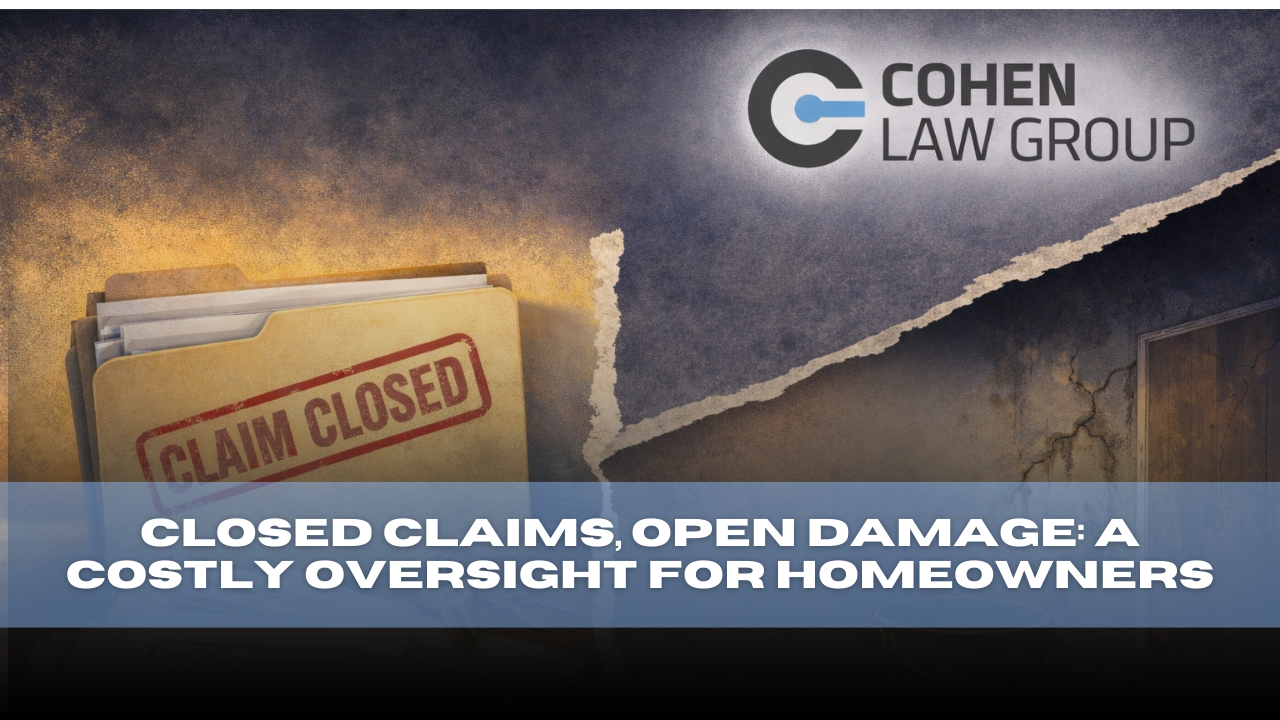Florida, insurance policies often include post-loss conditions that policyholders must follow after experiencing a loss. These conditions are critical for ensuring that the insurance claim process goes smoothly and that the insurer can properly assess and handle the claim. Here are some typical post-loss conditions you might encounter in a Florida insurance policy:
- Claim Reporting You must promptly notify your insurance company of the loss. Policies usually require that you report the loss as soon as possible or “promptly.” What is prompt? It is oftentimes not defined. Once you discover that you have a problem, you need to report it. The date of the discovery may not be the date that the loss occurred. A windstorm may occur on the first of the month and the interior leak may not appear until a month or two later until the next rainstorm comes through. Once you are aware of damage you must promptly report it.
- Protect the property from further damage: You are generally required to take reasonable steps to protect your property from further damage. This might include making temporary repairs or securing the property to prevent additional harm. If a mainline pipe is leaking and it has to be repaired immediately, document the leak with a video of the broken pipe and take photographs so that the insurance company can not come back and state that you made repairs before they were able to inspect the damaged property. For storm-damaged roof leaks, it is strongly recommended that you tarp the roof instead of completing any repairs until the insurance company inspects.
- Execute a Proof of Loss: You may need to provide a detailed proof of loss statement. This often includes a written estimate of damages and a list of damaged or lost items on a notarized form. Many carriers try to trick insureds with the language included in these forms about the type of coverage sought.
- Cooperate with our investigation of the claim: You are expected to cooperate with the insurer’s investigation of the claim. This might involve providing access to the damaged property, answering questions, and providing documentation as requested. However, if the information requested has nothing to do with the claim, F.S. 626.9541 requires the insurance company to explain how the information requested is necessary. If this happens to you- contact an attorney.
- Content Inventory List: It’s often necessary to create an inventory of damaged or lost items and provide receipts, bills, or other documentation to support your claim. Depending on the policy your contents could be covered under actual cash value or replacement cost coverage.
- Formal Reports- For certain types of claims, such as theft, vandalism, or fires, you may need to file a police report or contact the fire department and provide a copy to the insurer.
- Recordkeeping: Keeping records of all communications with the insurer, as well as any expenses related to the loss, is critical for the claims process. Memorialize all conversations in a follow-up email to the insurance company adjuster.
- Compliance with Policy Terms: You must comply with all other terms and conditions outlined in your policy. This includes adherence to any specific requirements related to the claim process.
Insurance companies love to cite the slightest failure to comply with these post-loss conditions to support a denial of your claim. They often cite to your failure to produce a document that may not even exist! Always review your specific insurance policy for exact requirements and consult with your insurance agent or a legal professional if you have questions about fulfilling these conditions. If you believe you have substantially complied with the post-lost conditions and were wrongfully denied, be sure to get in touch with us immediately.
Weston Ehrman, ESQ.








